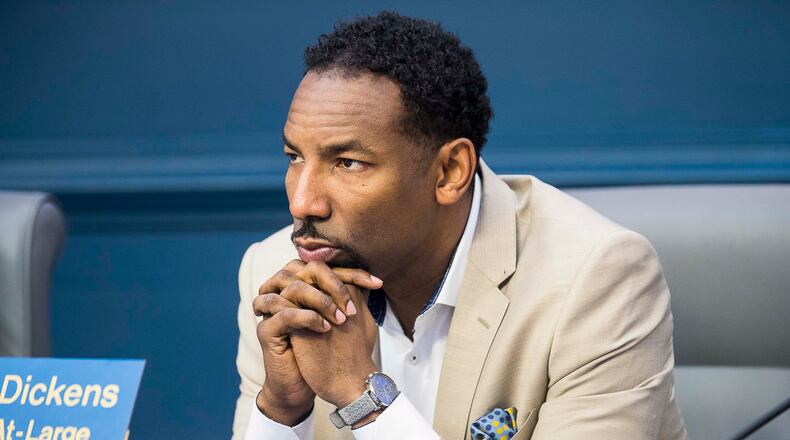The Atlanta City Council is expected Monday to vote on a proposed ordinance that would substantially expand the power of the Atlanta Citizen Review Board, the independent body responsible for reviewing complaints about alleged police misconduct.
The proposal would allow the board to force the Atlanta police chief to personally appear before it when the chief fails to respond to the board’s recommendations.
According the board’s data, former Police Chief Erika Shields failed to respond to the board nine times last year, including to a finding that two officers wrongfully threatened to to kill a woman’s dog and intimidated her children.
The ordinance, sponsored by Councilman Andre Dickens and passed unanimously out of the council's Public Safety Committee last week, comes after weeks of civil unrest on Atlanta Streets — and two high-profile incidents of alleged use of excessive force by officers, one of which ended in a fatal shooting.
The ordinance also mandates that the board investigate and hold public hearings for all incidents involving the discharge of an officer’s firearm, stun gun or Taser in a manner that results in death or serious bodily injury — even when no allegation of misconduct is made.
An Atlanta Police Department spokesman did not respond Wednesday to a request for comment.
The ordinance would expand the board’s membership from 13 to 15 members, and require two members to be young — between the ages of 18 and 30.
The review board also received a substantial increase in its budget this year, an additional $427,000 that Executive Director Samuel Lee Reid II said would be used to hire three additional staff members and pay for significant community outreach. The board currently has 9 staffers.
“One of our challenges has been citizen lack of awareness,” Reid said. “You can’t use what you don’t know about.”
Atlanta City Councilman Antonio Brown said the lack of knowledge of the board’s existence became evident early on during the demonstrations over George Floyd’s death at the hands of a Minneapolis’ police officer. Many protesters called for the creation of a police review board, Brown said.
Brown had to tell them that one already exists. He said passage of the ordinance would be “a big win for the city.”
Reid also said the additional funding will allow for analysis of police data apart from the complaints the board receives, so it can identify problematic patterns and practices before they turn into complaints.
The board’s decisions are not legally binding upon the department. Last year, the department agreed with only 31 percent of the board’s recommendations, but that was up from 17 percent the year before, according to the board’s 2019 annual report.
Former State Senator Vincent Fort, who championed the board’s creation in the aftermath of a bungled 2006 drug raid in which 92-year-old Kathryn Johnston was shot to death by officers, said the changes in the ordinance were well-intended but did not go far enough.
Fort argued that the board’s recommendations should be binding.
“That is the one specific change that would be effective,” he said.
About the Author
Keep Reading
The Latest
Featured



